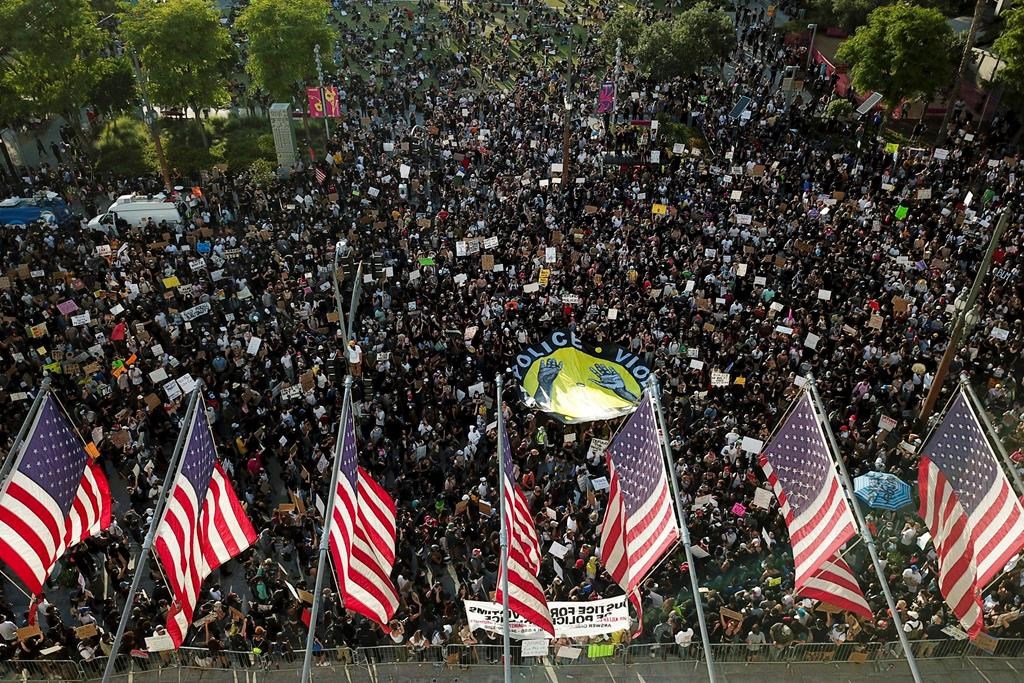It was late May 1966, the year of my graduation from high school in Montreal, when I came face to face with the reality that my friend Vic, a young Black man, and I, his white counterpart, were forced to view life through completely different lenses.

Vic and I were standing outside our classroom talking about how life was about to change and exploring options for the summer months ahead.
READ MORE: ‘We have to stand up’ — 10-year-old Ontario boy releases poignant video on racism, George Floyd
Neither of us was university-bound. We couldn’t afford it.
I saw graduation as an exciting time, our pending transition from student to adulthood. Fueled by the energy of youth, I saw a horizon filled with opportunity.
I had a few weeks earlier purchased my first car for the princely sum of $175. It was a 1959 Plymouth Belvedere and it was in a state of perpetual disrepair. The only things that separated me from the road below were floor mats and the couple of two-by-fours that propped up the front bench seat.
Still, I had wheels, I wanted to travel. Vic listened as I suggested that he and I drive to Florida for a few weeks. “We can drive there, have some fun and be back to start working full time.”
“We’ll never make it,” Vic said.
I thought he was talking about my car. “Oh, sure we will,” I replied. “I know the car is a pile of junk, but I’ve figured out how to keep it running most of the time and the trunk is filled with spare tires for when we have flats.”
“No, we’ll never make it,” Vic repeated.
I was puzzled. “Why not?”
“Roy,” he said, “two young men, one Black, one white, driving through the Carolinas, Georgia and northern Florida together? We’ll never make it.”

The years immediately preceding this conversation had seen vicious resistance to racial integration in the American south, including the 1964 Mississippi murders of civil rights workers Michael Schwerner, Andrew Goodman and James Chaney. Schwerner and Goodman were white and from New York City, Chaney was Black and born and raised in Meridian, Miss.
Their killers included a Mississippi county deputy sheriff.

Get daily National news
Even after the bodies were discovered and the killers were identified through the confession of a Ku Klux Klan member who had participated in the murders, the state of Mississippi issued no arrest warrants.
Perhaps you have seen the Gene Hackman film, Mississippi Burning. It tells the story.
It was against this backdrop that my friend Vic delivered his “we’ll never make it” declarations.
Last weekend, I spoke on air about the current crisis in the United States with my friend Ron Miller, an African American, decorated veteran of the U.S. Air Force and dean of the Helms School of Government at Liberty University.
Ron and I have engaged in lengthy off-air conversations over the years, including his sharing that he’d had the talk Black fathers have with their sons on how to deal with and react to police.
Ron will join me this Sunday to speak about the impact of the last week in the United States.
“One of the great challenges of resolving our thorniest social problems is overcoming our certainty that our personal life experiences constitute incontrovertible truth,” he wrote to me in an email on Tuesday.
“People lack the capacity to understand that the ‘land of the free’ for them may be ‘two Americas, one white, one Black, separate and unequal,’ as the Kerner Commission report said in 1968.”
Just like Vic had alerted me after I suggested we drive to Florida in 1966.
Today, I can still picture that Montreal high school hallway where I came to understand that even as best of friends, our lives were so different.
For me, the future was all about possibility. Vic’s reality was different — he saw what was impossible: “We’ll never make it.”
In the end, we decided not to chance it.
Roy Green is the host of the Roy Green Show on the Global News Radio network.
Listen to the latest from the Roy Green Show
Subscribe to the Roy Green Show Podcast now at Apple Podcast or Google Play








Comments